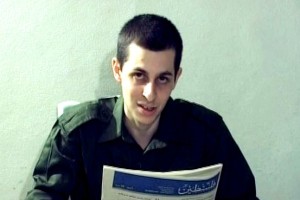Star Rating: 4/5
Director:
- Alfonso Cuarón – Love In The Time of Hysteria, Harry Potter III, Children of Men
Cast:
- Sandra Bullock – Crash, Premonition, The Blind Side, Minions
- George Clooney – Syriana, The American, The Ides of March, The Monuments Men
- Ed Harris – A Beautiful Mind, The Way Back, Man On A Ledge, Frontera
Music Composer:
- Steven Price – Attack The Block, The World’s End, Fury
Movies that have delved into the realms of outer space have usually fallen somewhere in the triangle of the sublime, the ridiculous and the farcical. Avatar, Star Wars I-VI, and Lost In Space give credence to this (erratic) trinity in varying ways. Among the spaceships, the ray-gun shoot-outs, and the convergence with antenna-eyed or raptor-style aliens, there has been little room (ironically) for realism in a film set in space. Until now. It may have none of the above, but Gravity gives us a true and uncomfortable feel for what it is like to be outside of the Earth’s atmosphere.
Gravity centres round Dr. Ryan Stone (Sadra Bullock), a Mission Specialist. She is on her first expedition into space, led by Matt (George Clooney), a veteran on his last voyage into space. Dr. Stone is making repairs to the shuttle that she and Matt are flying with, when debris from an explosion on a Russian satellite smashes into their shuttle. With the shuttle damaged irreparably, Dr. Stone must find another shuttle if she wishes to return to Earth.
That is essentially the storyline for Gravity. One problem with the plot is that the film uses up its central premise within 30 of its 91 minute running time. This means that for the last hour, the movie recycles itself instead of flesh-eating alien invasions or putting inter-galactic arsenals to the test.
But for those who would rather see another Star Wars, Prometheus or Elysium, do not lose faith. Gravity is very engaging. It has moments of knuckle-whitening tension, amplified by the fast beat, gradual crescendo and sudden silence of the music; all whilst our main character tries to reach another space vessel before her oxygen runs out. In respect of tension, the movie is similar to Sanctum; only in Gravity, Alfonso Cuarón’s directing style increases one’s ability to empathise with the protagonists’ predicament.
Predominantly, the film is seen through Dr. Stone’s eyes (or rather her space-helmet), as she swims around in the boundless, atmosphere-less blackness. Without a centre of gravity, the movie enables viewers to appreciate what it’s like to be in space, rotating endlessly unless one can find something to hold onto. And unlike (the lamentable) Lost In Space, Gravity gives audiences a genuine taste for how scary it would be to get lost in space and to lose contact with the only people who might be able to find you.

Matt (George Clooney), from behind his space helmet, gazing and admiring Earth, amidst the peace of outer space.
In part, one feels the depth of this horror because of Sandra Bullock’s energetic performance. Her character is almost always in panic (as any human being would be in her situation) and this exacerbates Dr. Stone’s (somewhat) complex personality. Due to an unhappy episode in her past, we see her mindset switch from despair to a willingness to live on (and vice-versa) repeatedly. This is something which viewers can relate to on a human level, and it was very important that Bullock achieved this feat. For much of Gravity, she is alone on screen, and if she had failed to show Dr. Stone’s personality to the full, audiences would likely have stopped caring about her.
The only other significant character in the film is Matt, played by George Clooney. And Clooney (surprise surprise) plays himself again as the smooth-talking, handsome wise-head, who goes and comes back (for plot convenience) to give sage advice. That is not to say that Clooney performs his role badly. It is just that we have seen this too many times already.
Bullock and Clooney aside, Gravity is remarkably consistent with its depiction of reality in space. Too often in (bad) films, one sees/hears characters breathing and talking in space. Here, however, there is none of that nonsense! The only time one hears sounds is through the space suit’s microphone, which is so refreshing (and illustrates that not all filmmakers have the paucity of knowledge of physics as Sidney Furie, the director of the rightly-maligned Superman IV: The Quest For Peace.)

Dr. Stone trying to grip a bar on the shuttle, or else she could be find herself adrift in the endless, empty abyss of space surrounding her.
Moreover, audiences are treated to stunning visual effects. The emptiness that is outer space, in all its wonder, is shown to be disconcertingly large. What’s more, the 3D (for once) enhances the visual experience, even more so than it did in Avatar and Star Trek II: Into Darkness. In Gravity, when debris flies at Dr. Stone, one jerks one’s head out of the way, believing he/she will otherwise be hit! Considering how often the 3D does little more than darken the film and add a couple more quid to the cinema ticket, one must applaud Cuarón for augmenting the experience in a positive and noteworthy way.
Over-all, Gravity is a great demonstration of what being in outer space feels like. That the film has no alien encounters or futuristic ray-gun fights gives the film an ironically grounded dimension that has been sorely lacking in so many other movies that have ventured into space. Due to Sandra Bullock’s great acting, the extraordinary level of consistency regarding the physics of space, the amazing special effects and the 3D, Cuarón has treated us to outer space’s awe-inspiring massiveness, as well as how frightening space can be when out there, lost.
PG’s Tips














